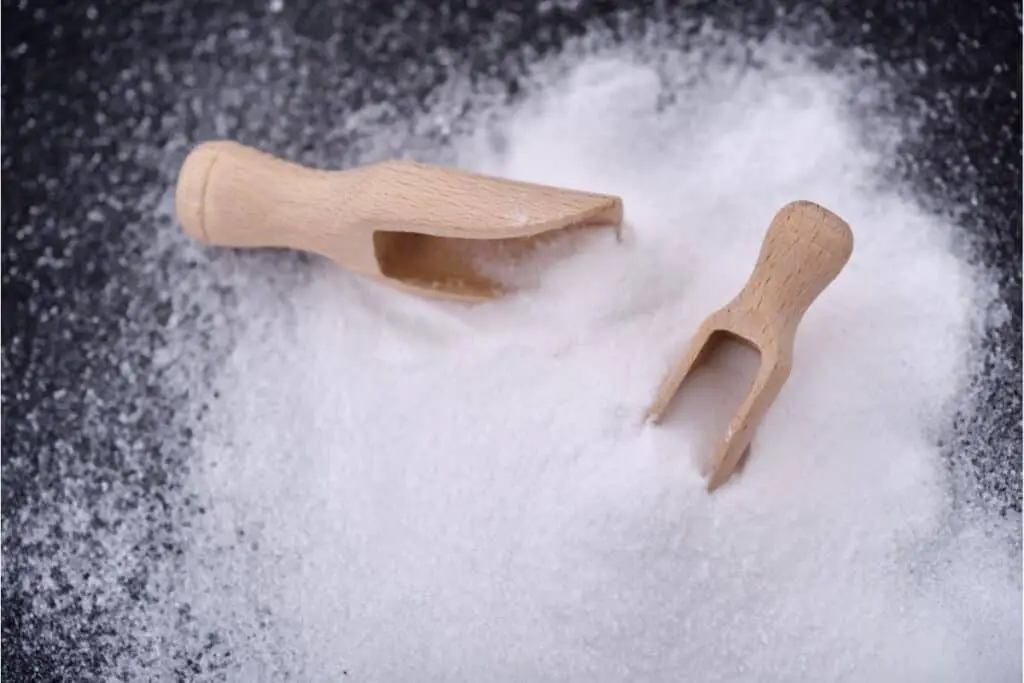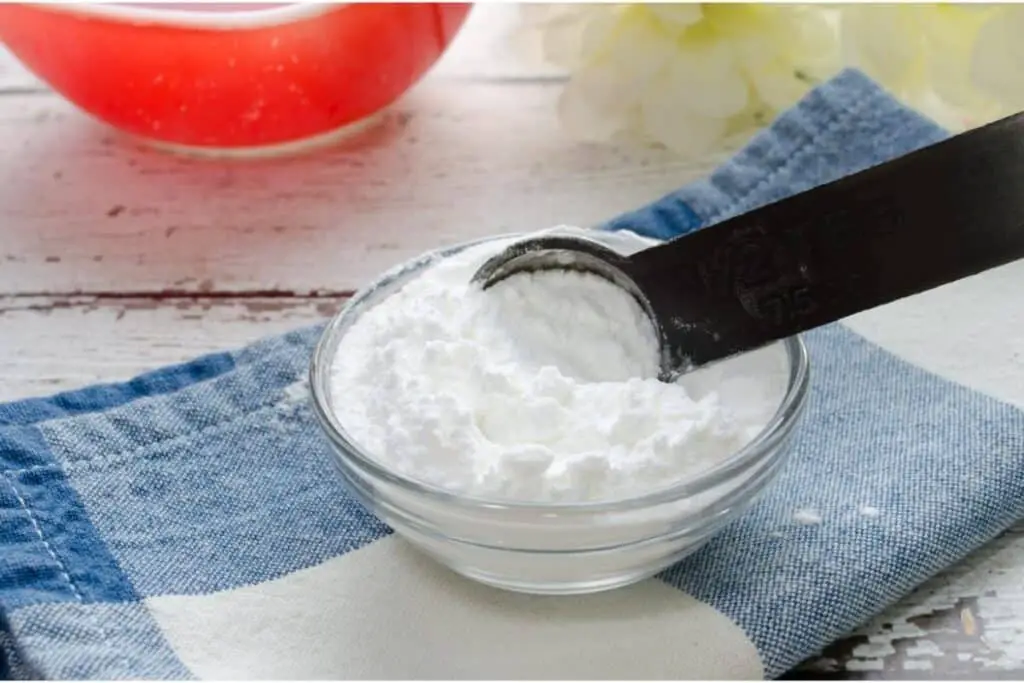Baking is one of the greatest things to do. It is an activity you can do with children, do it on date night you can make a business out of it, or you may just be someone who really enjoys baking and chooses to do it for themselves. But whatever reason you choose to bake, there is one thing that all bakers seem to have in common, and that is knowing the difference between baking soda and baking powder.
These are core ingredients used in a variety of recipes yet their similarity in name leads to plenty of confusion. Professional bakers would have had to cross this knowledge hurdle just the same way as those who bake in the comfort of their home for leisure, and this is something which we should all be educated on.
In this article, we will be exploring in detail exactly what the difference is between baking soda and baking powder as well as answering some common questions.

What Is Baking Soda?
So, what exactly is baking soda? Baking soda (also referred to as Bicarbonate of Soda) is a chemical (an alkaline white powder) and this is something that is used commonly in the kitchen.
You will find baking soda needed in a number of bakes such as within pancakes and muffins and this is because it needs a component to help hold its shape – baking soda is the component to achieve this.
It is difficult for a baker to not own baking soda for it is an essential part of most recipes. Baking soda is the one thing that holds the ingredients together so has great value.
Who Invented Baking Soda?
Baking soda was first created by bakers John Dwight and Austin Church. At first, they had discovered the value of their invention and it was first known as Arm and Hammer, but eventually, they wanted to expand.
Dwight and Church wanted to show everyone the power of baking soda so incorporated it into baking recipes. They sold cookbooks for cookies and cakes featuring their product until eventually, the chemical grew into a core ingredient.
How Much Baking Soda Per Cup Of Flour?
When it comes to measuring, the general rule of thumb is ¼ teaspoon of baking soda per cup of flour.
What Happens If You Forget Baking Soda?
It is common for people to forget small ingredients when baking but this doesn’t always mean it is the end of the world. You will find that by forgetting baking soda, the end product will be of great quality. Baking soda is there to hold a cake’s shape and give it that extra lift. Without it, your cake will be flat.
If you do accidentally miss out on it, this can be easily replaced with baking powder. This applies to bread, cake and cookies alike. The recommendation is to use three times the amount of baking powder to substitute the baking soda.
Can I Make Cookies Without Baking Soda?
Yes, it is very possible to make cookies without baking soda however you will find that the cookies will come out dense. Baking soda produces carbon dioxide production which gives the cookie its quality, so without it, the end result will be different. If you choose to, you can replace it with baking powder instead.
Banana Bread No Baking Soda
Banana bread can still be made even without the leavening agent of soda. The only downside to leaving this out, however, is that it will not rise as well and the quality will taste denser.
Baking Soda Alternative
The general baking soda alternative which people tend to turn to is baking powder. Although soda is three times stronger, they both work the same way as they are both leavening agents.
The best way to substitute the baking soda is to use a 1:3 ratio – instead of 1 teaspoon of soda, replace this with 3 teaspoons of baking powder. Some other less popular substitutes are egg whites and self-rising flour.
Does Baking Soda Expire?
You will find that an opened box of soda has a life of between 6 months to a year, but if this box is unopened then you will find your product lasting much longer than its expiry date (around 2 years).
Generally, baking soda stays fresh for a while but there are some signs you can look out for to determine whether or not it is still good to use. One method is to put some soda into a bowl and add some drops of vinegar to it. If it starts to fizz immediately, it is still good to use. If it doesn’t then it is ready to be thrown out.
What Is Baking Powder?

Baking powder is a raising agent made from components including baking soda, cornflour and cream of tartar, and what is great is that this can be made from scratch right in your kitchen. So long as you have the three components then you will come out with your very own baking powder.
Baking powder is an ingredient used in many baking recipes and is a common alternative to baking soda. It works to produce carbon dioxide which then forms bubbles and causes the mixture to expand. This, just like baking soda, is a valuable asset to the kitchen.
Who Invented Baking Powder?
Baking powder was first truly discovered in the mid 19th century (the 1840s) by a man named Alfred Bird. This chemist combined cream of tartar with baking soda, the two major components needed to create a baking powder.
Later on, in history, Eben Norton Horsford furthered this invention and finally created the first modern baking powder.
History of Clabber Girl Baking Powder
Clabber Girl is a highly trusted baking powder company that saw its rise in 1899. 31 years later, Anton “Tony” Hulman Jr. began his nationwide sales to promote Clabber Girl which earned much attention.
The name of the company changed a few times, originally being owned by Hulman & Company, then being changed to “Milk Brand”, then “Clabber Brand” and now “Clabber Girl”. To this day, this American baking powder brand still continues to grow and is a powder supported by many.
What Is The Difference Between Single Acting And Double Acting Baking Powder?
Not everyone knows of the two different kinds of baking powder – it is single-acting and there is double-acting. Both of these types have the same rising power and it is possible to substitute one for the other, but they do have slightly different definitions.
Single-acting baking powder reacts with water-based ingredients and this, in turn, makes carbon dioxide bubbles. Because of the speed of the forming bubbles, it is important for this to be baked immediately after use.
Double-acting baking powder is very similar to single-acting but the bubbles do not all form straight away; most form when in the oven. Because of this, there is less rush to put it in the oven and you are able to get away with baking without necessarily preheating.
Forgot Baking Powder in Cookies
It is possible to bake cookies without baking powder however the quality will be affected. Overall, your cookies will be a lot denser and will not have that rise or puff that it needs.
How To Make Cake Without Baking Powder
The worst thing for any baker is to be prepared for baking just to realize they have run out of one of the core ingredients. Luckily, there is always a way around this. Although the baking powder is in most recipes, it is very possible to make a cake without it.
Below is one example recipe for a 3 ingredient classic sponge cake:
You will need:
- Granulated sugar (1 cup)
- Eggs (6 large)
- Plain cake flour (1 ½ cups)
To make this, first, you need to carefully separate the egg yolks from the egg whites. After this, mix the egg yolks with half of your sugar until pale. Then sift your cake flour and your salt.
In a separate bowl, beat your egg whites until they have turned to foam before adding in the rest of your sugar a little at a time. Add your egg whites to your egg yolks gradually, folding together as you do so.
Add your flour to the butter mixture and stir together before pouring into a pre-greased pan. Bake this for 30-40 minutes at a preheated 350 degrees Fahrenheit.
Do Brownies Need Baking Powder?
Baking powder is highly recommended when it comes to baking brownies as this is what is needed to make the cakes rise and attain their fudgy texture. However, it is still possible to make brownies without it if you don’t mind the quality being slightly different.
Homemade Baking Powder
Baking powder is great because it can be made straight in your kitchen! This is especially ideal for those who may be missing this ingredient. To make homemade baking powder only 3 ingredients are required: baking soda, cream of tartar, cornstarch.
To make it simply combine the cream of tartar and baking soda together, adding in your cornstarch to absorb moisture and to stop your powder from clumping. Adding cornstarch is also ideal for storing purposes too.
Baking Powder to Flour Ratio
Typically, for every 2 teaspoons of baking powder, you need 1 cup of flour.
Does Baking Powder Expire?
Yes. Like most foods and products, baking powder is another which can expire. In order to tell if your baking powder has gone bad, spoon half a teaspoon of baking powder into a bowl and pour in a quarter cup of boiling water over the top.
What you should start to see is it bubbling which is an indicator of good powder. If it does not bubble then it is time to throw it out.
What Is The Difference Between Baking Soda And Baking Powder?
Baking powder and soda are very similar in many respects, so much so that they can be used to substitute each other in recipes. But this does not mean they are the same. What sets one apart from the other is how they react.
While soda needs both acid and liquid to help your cakes and bakes rise, baking powder only needs a liquid to activate and do this.
Why Do Some Recipes Call for Both Baking Soda and Baking Powder?
You may find that some recipes require both baking powder and soda and this can cause some confusion, especially after realizing what makes them different from the other.
The reason why some recipes call for both is that the recipe contains some kind of acid – this acid can be anything from yoghurt to brown sugar – but the acid is not strong enough on its own with only one of the two. Because of this, they are both needed to provide that needed rise.
Final Thoughts
Overall, baking powder and soda are two very similar yet different ingredients that need to be understood. Although it is true that on many occasions one can be swapped out for the other, they still need to be looked at as separate entities.
Baking soda has a long line of history, and this discovery has shaped the way of baking as we know it. Without it, our cakes would be left flat and dense, and without it, we would not have baking powder.
There are many things that can be made without baking powder or soda and there are plenty of recipes that promote this, but for the best quality bakes, we recommend sticking to these two or finding a suitable substitute.
Baking powder is simple to make so you do not have to worry about missing a core ingredient, and both baking powder and baking soda are made to last. Make sure to store these away correctly and don’t allow them to be exposed to moisture. By following these steps, your powder and soda will never expire.

